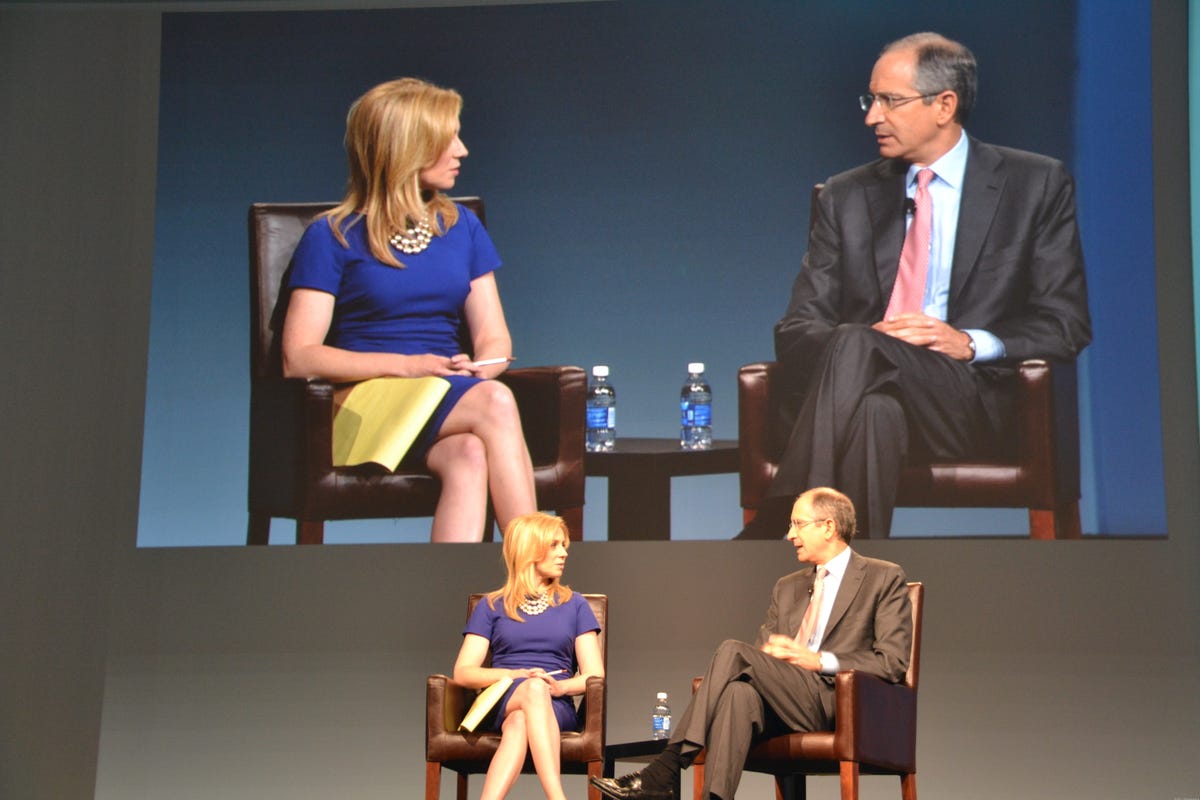
CNET/Marguerite Reardon
Comcast Chief Executive Brian Roberts teased the idea of streaming-video services such as Netflix and Amazon Prime coming to Comcast, as part of a platform that sounds like the holy grail of home entertainment.
In a Q&A session at the Recode technology conference in Palos Verdes, Calif., Roberts said the services could eventually be integrated into what he called “Project Infinity,” a platform that could offer a consumer “any content on any device at any time.”
“I hope in a few years they will,” Roberts said about the idea of Netflix and its peers being included. “But we’re not [offering that] today.”
For services such as Netflix, getting on Comcast’s video platform would be a coup, as it would instantly increase the potential customer base. Rather than streaming boxes such as an Apple TV or Roku, it could potentially be embedded into the television set-top boxes of the nation’s largest cable provider, which is set to get even bigger if it successfully acquires Time Warner Cable. That $45 billion proposed merger would create a cable giant with approximately 30 million subscribers, controlling nearly a third of the US pay-TV market.
Netflix has said it would welcome a partnership with the cable providers, but its wish for a union remains largely unsatisfied. Netflix has struck a deal with three smaller regional cable providers with fewer than a million subscribers combined, as well as with a UK pay-TV operator, but the large cable companies haven’t been receptive, likely because Netflix is seen as a competitor to the traditional pay-TV model.
It’s the first time Roberts has hinted at such a potential alliance, or even provided a timeline, as vague as he was.
Comcast has been developing its X2 entertainment platform as an update to its unique X1 platform, which moved much of its video system to the cloud. Roberts said the goal is for X2 to be personal, easy, and fun.
“The stinking cable box is the wrong platform,” he said Wednesday. “The biggest change we’ve been able to do is the X1 operating system because we take the brains out of the box.”
Roberts also weighed in on the issue of Net neutrality, which is the principle that all Internet traffic has to be treated equally. He said he was “absolutely” a believer in that concept, and said there hasn’t been any evidence of behavior that Comcast has slowed down traffic.
“We want consumers to feel the Internet is open, it’s safe, its free,” he said. “Not that there’s winners or losers.”
He also discussed a public fracas with Netflix over interconnection — a way content providers can link up their systems to Internet service providers to ensure better reliability — in greater detail than Comcast has before.
“We did a deal with [Netflix CEO] Reed Hastings and he wasn’t happy about it,” Roberts said. “They would like it all to be free. But everyone pays something to get to the Internet.”
Roberts said Netflix approached Comcast about a direct connection, noting that the terms they reached were at a lower cost than Netflix was paying under a previous deal with a content delivery network, Cogent, that acted as a middleman between them. “It’s just business,” he said.
He said Comcast’s scale, as it stands without Time Warner Cable, was a point of derision with Netflix. When he met Hastings, the Netflix chief told him “you’re nice and everything, but you’re a regional provider,” according to Roberts.
And if the national scope of a combined Comcast-Time Warner Cable makes you nervous, hold on.
“I think we’ll try to be more global,” Roberts said.
Update, 11:24 a.m. PT: With further details from conference.




